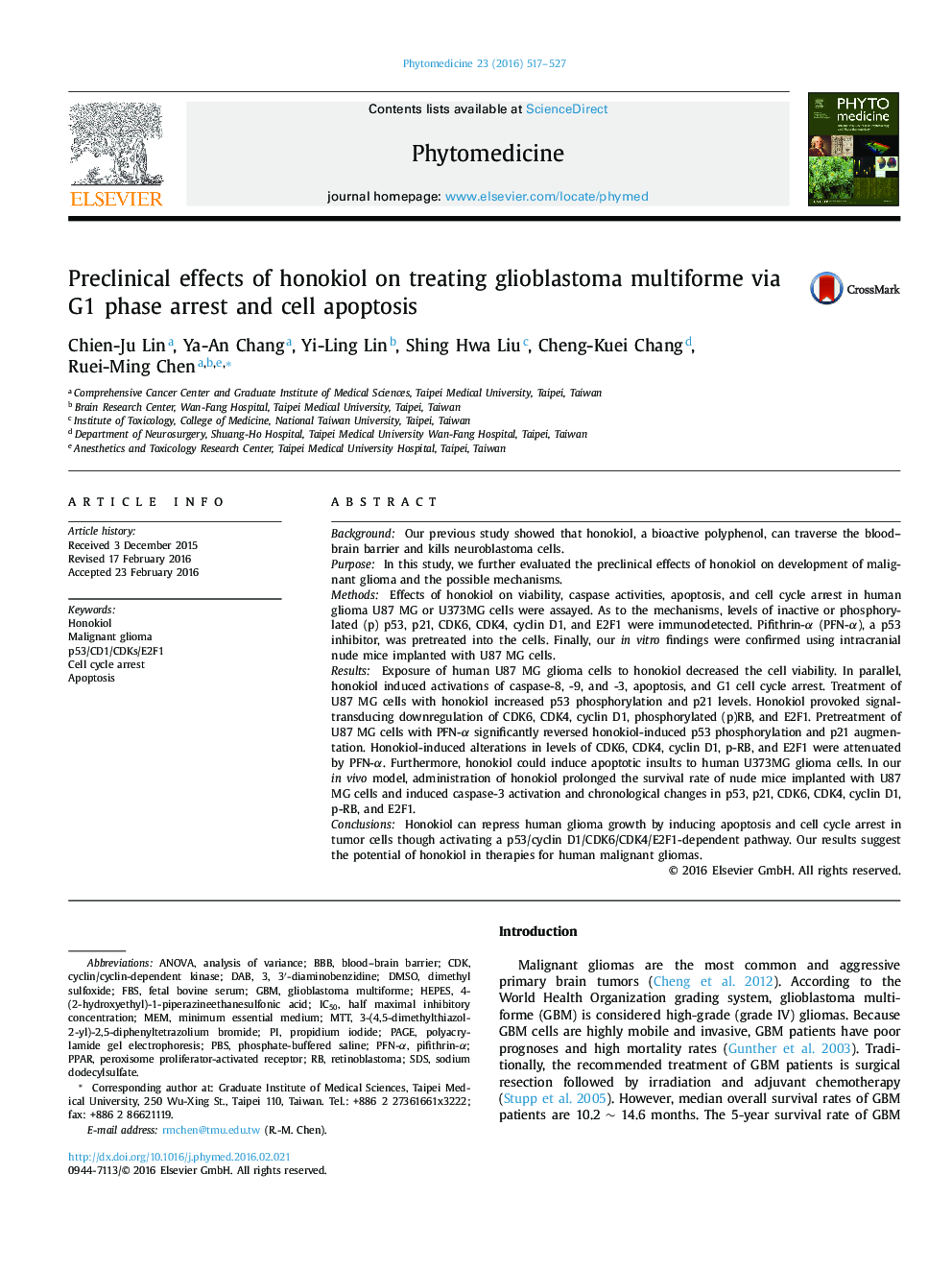| کد مقاله | کد نشریه | سال انتشار | مقاله انگلیسی | نسخه تمام متن |
|---|---|---|---|---|
| 2496259 | 1116117 | 2016 | 11 صفحه PDF | دانلود رایگان |

BackgroundOur previous study showed that honokiol, a bioactive polyphenol, can traverse the blood–brain barrier and kills neuroblastoma cells.PurposeIn this study, we further evaluated the preclinical effects of honokiol on development of malignant glioma and the possible mechanisms.MethodsEffects of honokiol on viability, caspase activities, apoptosis, and cell cycle arrest in human glioma U87 MG or U373MG cells were assayed. As to the mechanisms, levels of inactive or phosphorylated (p) p53, p21, CDK6, CDK4, cyclin D1, and E2F1 were immunodetected. Pifithrin-α (PFN-α), a p53 inhibitor, was pretreated into the cells. Finally, our in vitro findings were confirmed using intracranial nude mice implanted with U87 MG cells.ResultsExposure of human U87 MG glioma cells to honokiol decreased the cell viability. In parallel, honokiol induced activations of caspase-8, -9, and -3, apoptosis, and G1 cell cycle arrest. Treatment of U87 MG cells with honokiol increased p53 phosphorylation and p21 levels. Honokiol provoked signal-transducing downregulation of CDK6, CDK4, cyclin D1, phosphorylated (p)RB, and E2F1. Pretreatment of U87 MG cells with PFN-α significantly reversed honokiol-induced p53 phosphorylation and p21 augmentation. Honokiol-induced alterations in levels of CDK6, CDK4, cyclin D1, p-RB, and E2F1 were attenuated by PFN-α. Furthermore, honokiol could induce apoptotic insults to human U373MG glioma cells. In our in vivo model, administration of honokiol prolonged the survival rate of nude mice implanted with U87 MG cells and induced caspase-3 activation and chronological changes in p53, p21, CDK6, CDK4, cyclin D1, p-RB, and E2F1.ConclusionsHonokiol can repress human glioma growth by inducing apoptosis and cell cycle arrest in tumor cells though activating a p53/cyclin D1/CDK6/CDK4/E2F1-dependent pathway. Our results suggest the potential of honokiol in therapies for human malignant gliomas.
Figure optionsDownload high-quality image (69 K)Download as PowerPoint slide
Journal: Phytomedicine - Volume 23, Issue 5, 15 May 2016, Pages 517–527